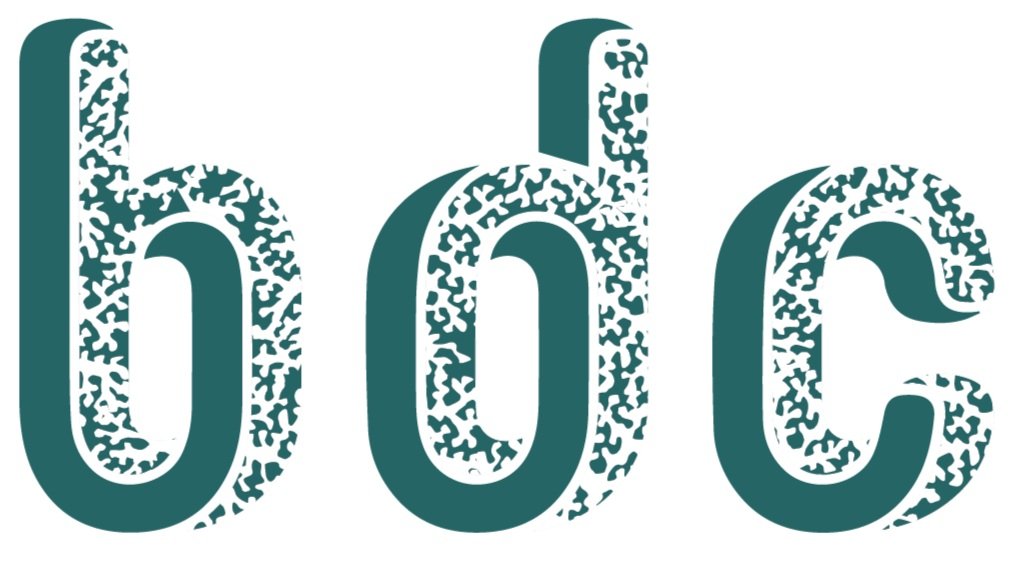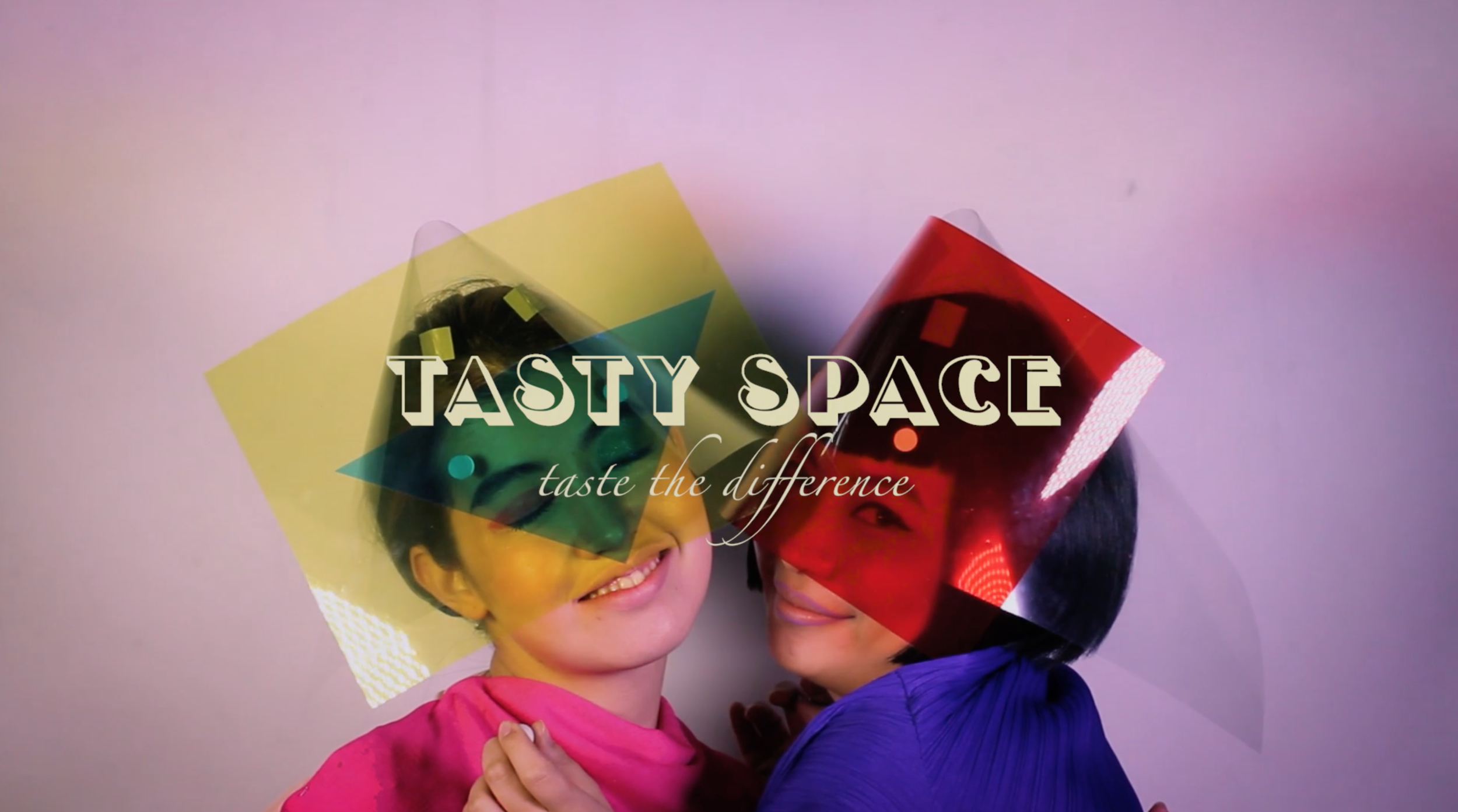Royal College of Art
Projects | 2017
POM
Greg Orrom Swan, Louis Alderson-Bythell, Tashia Tucker, & Sam Roots
POM is an agricultural technology that encourages flies to be more efficient pollinators. It is designed for a world in which bee pollination is no longer viable, due to declining bee populations.
Flies already play a major role in pollination, accounting for about 30% of pollination overall and a far higher proportion in cities. Flies make more visits to flowers than bees, but the chances of a visit resulting in successful pollination is lower.
POM lures flies using a controlled release of pheromones from a remote-controlled node, which clusters them around the flowers needing pollination. Nodes distributed throughout the farm enable this ‘cloud of flies’ to be shepherded from one region to another, covering all the blossoms that might be in flower at that point. POM ensures both efficient pollination and fruit harvests in the future.
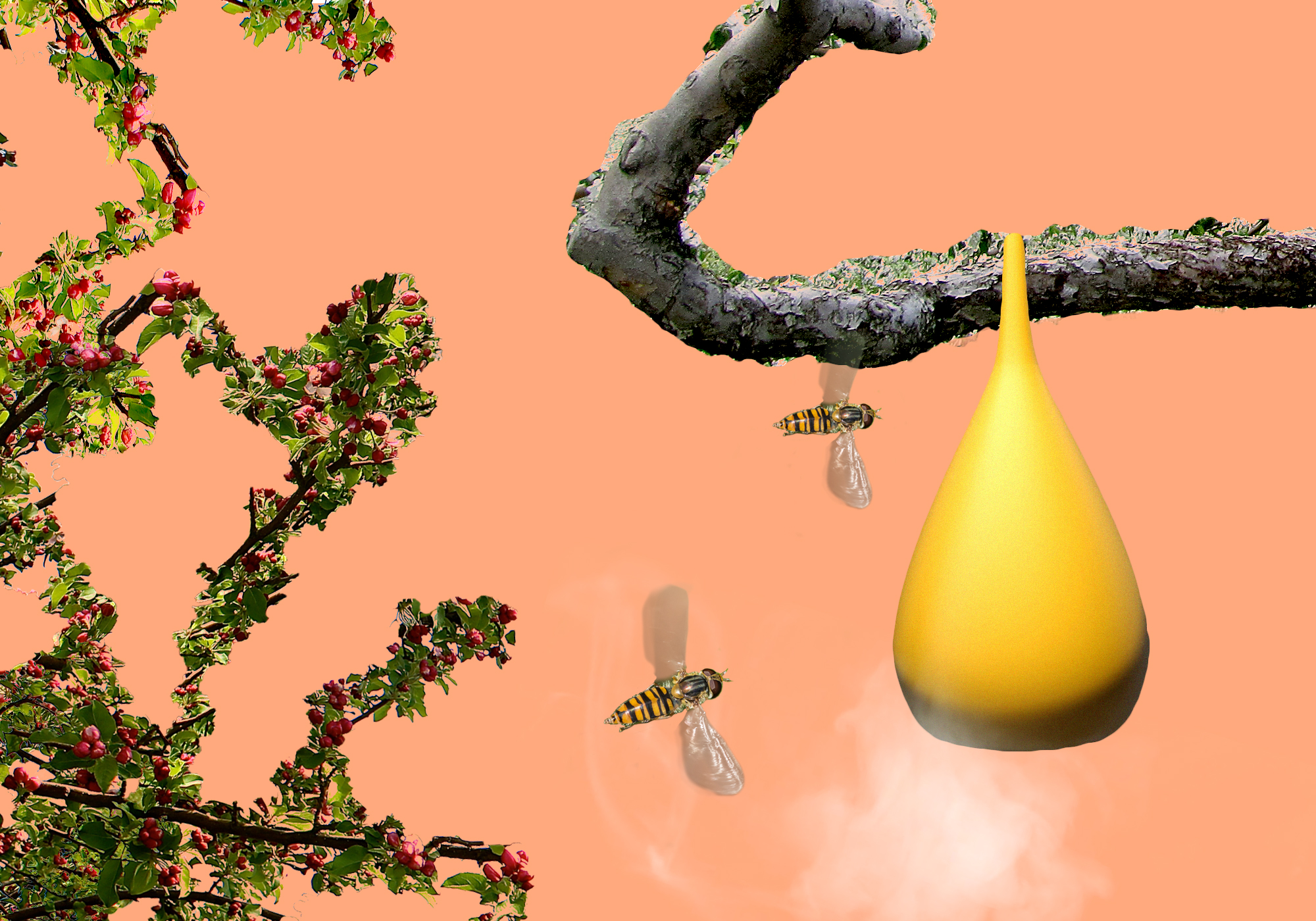
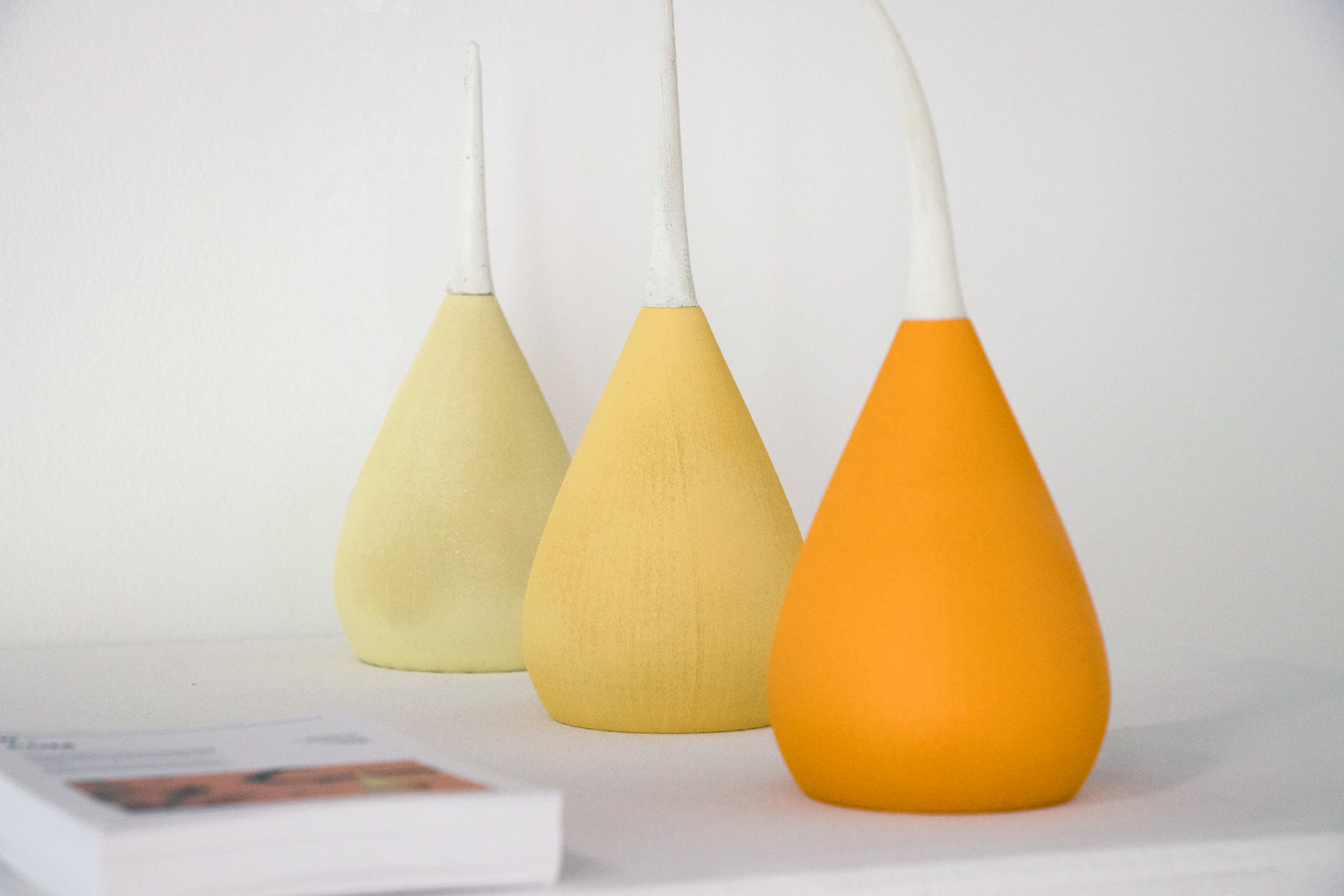
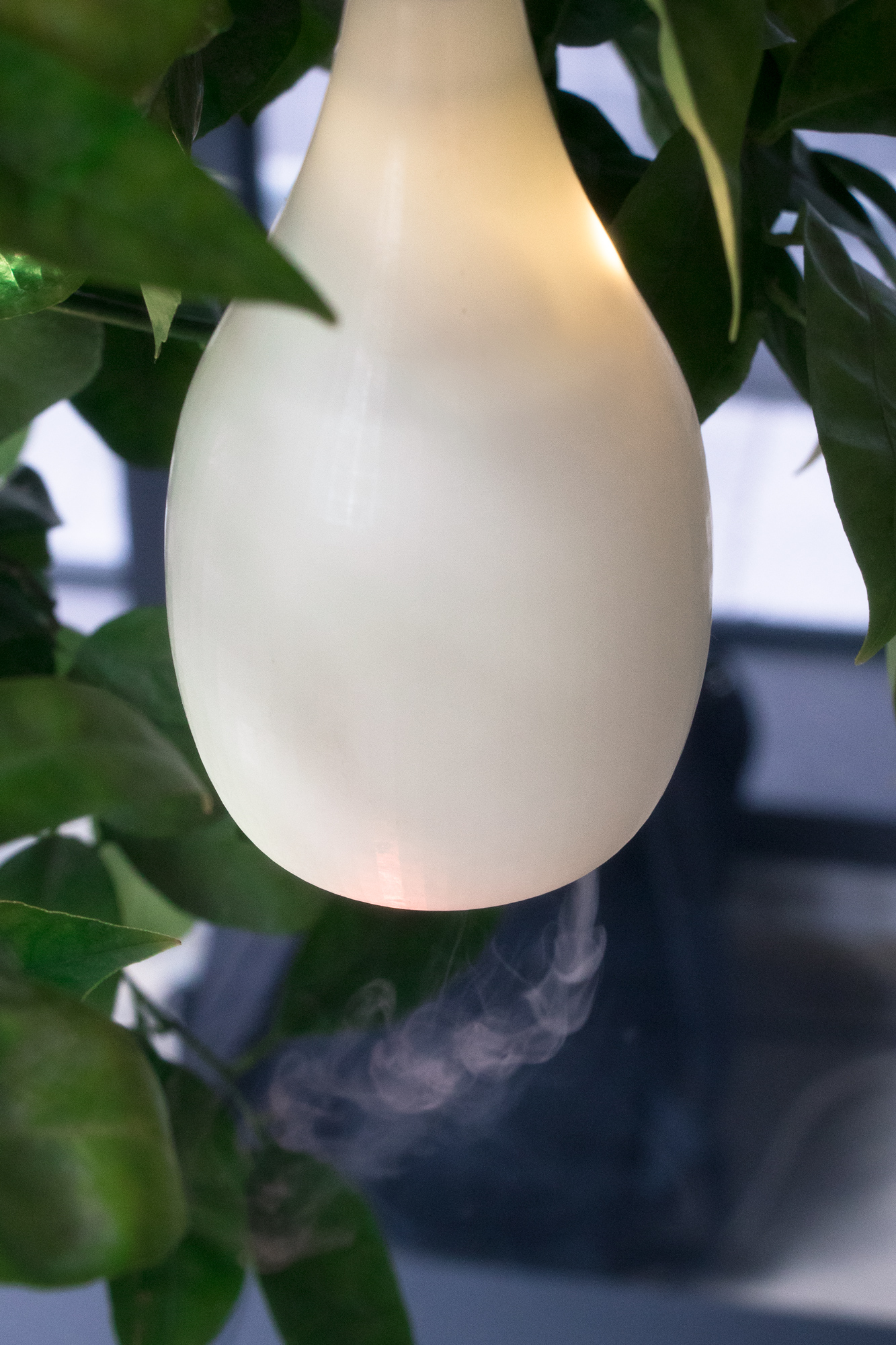
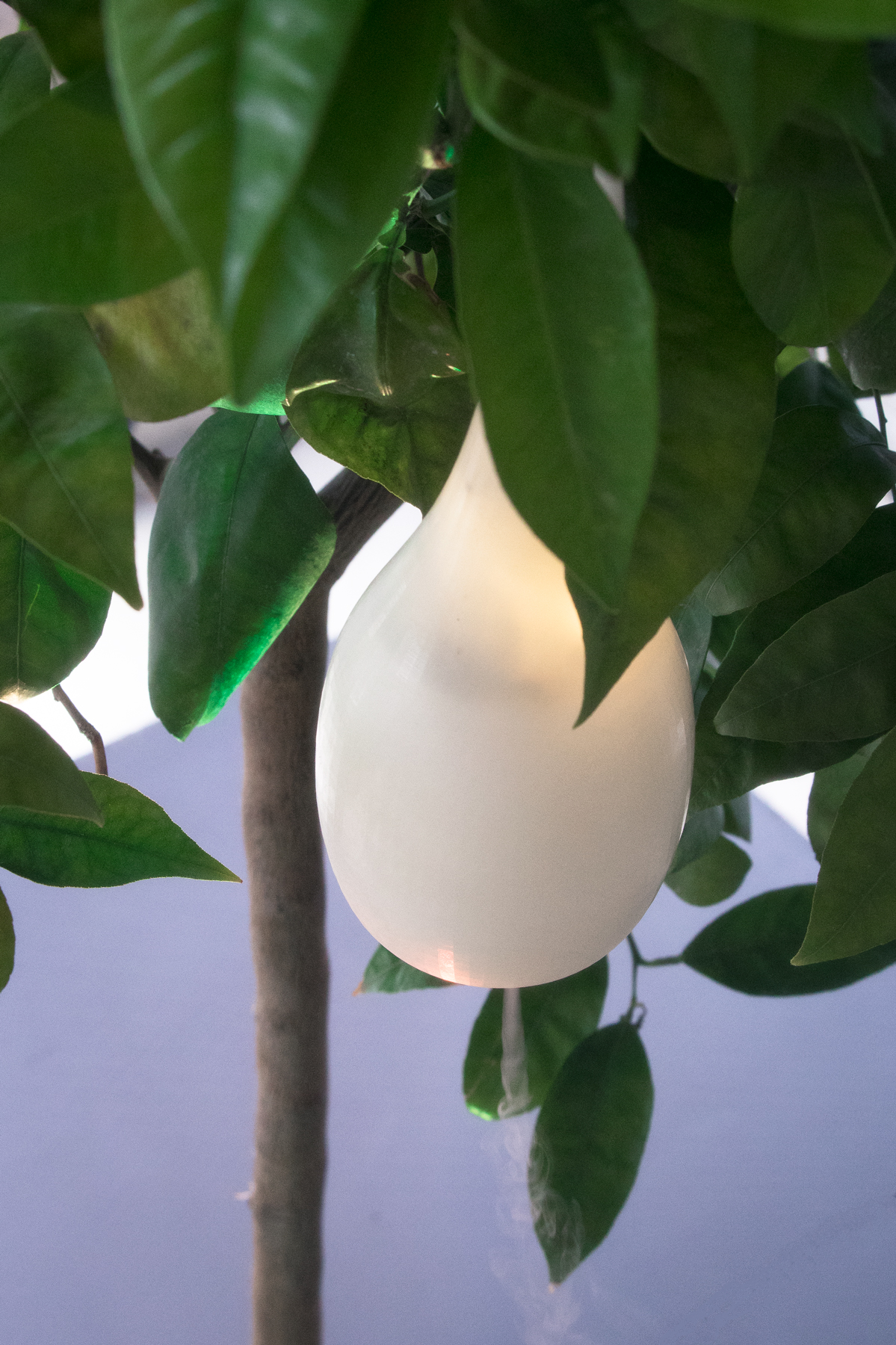
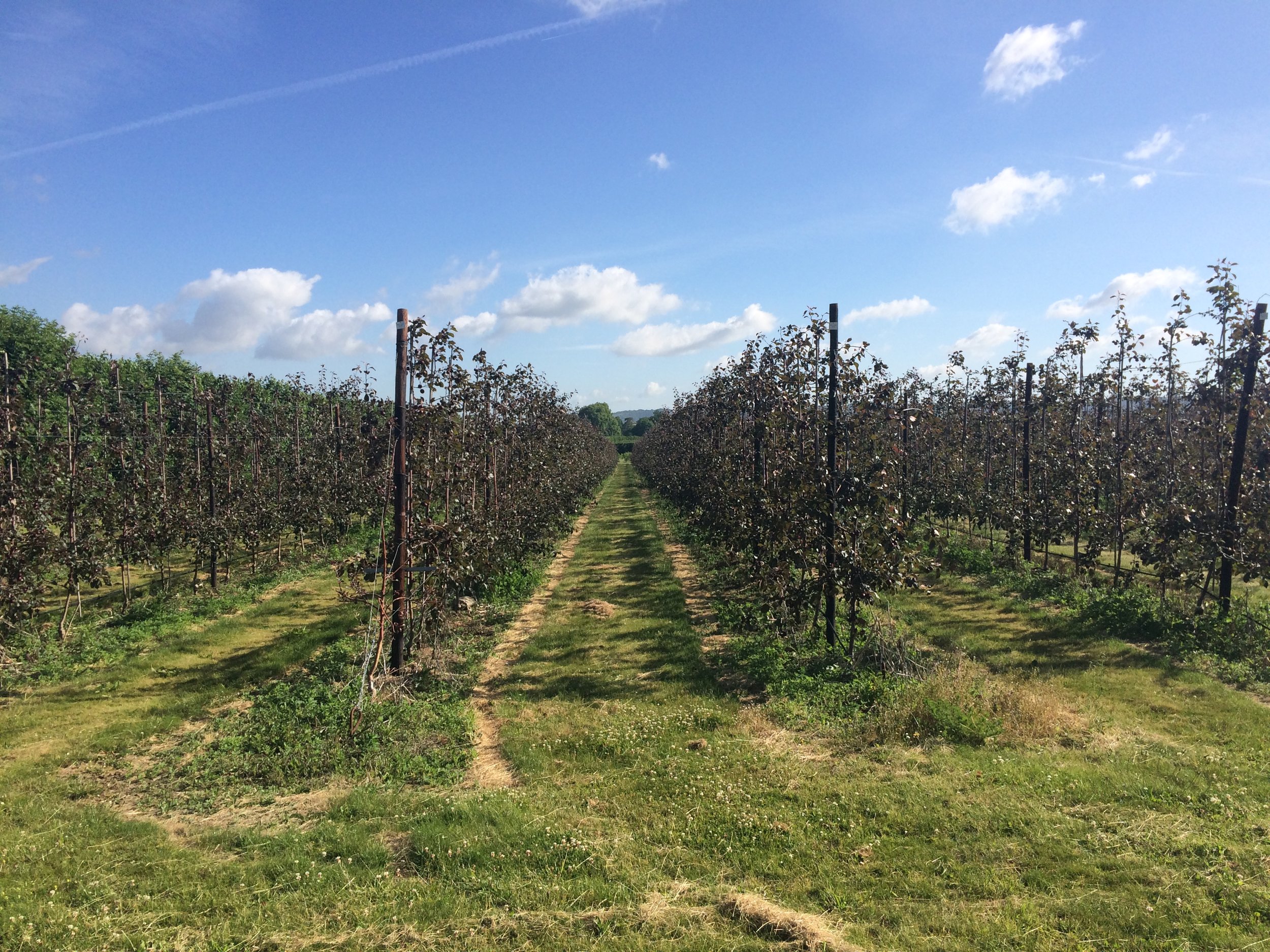

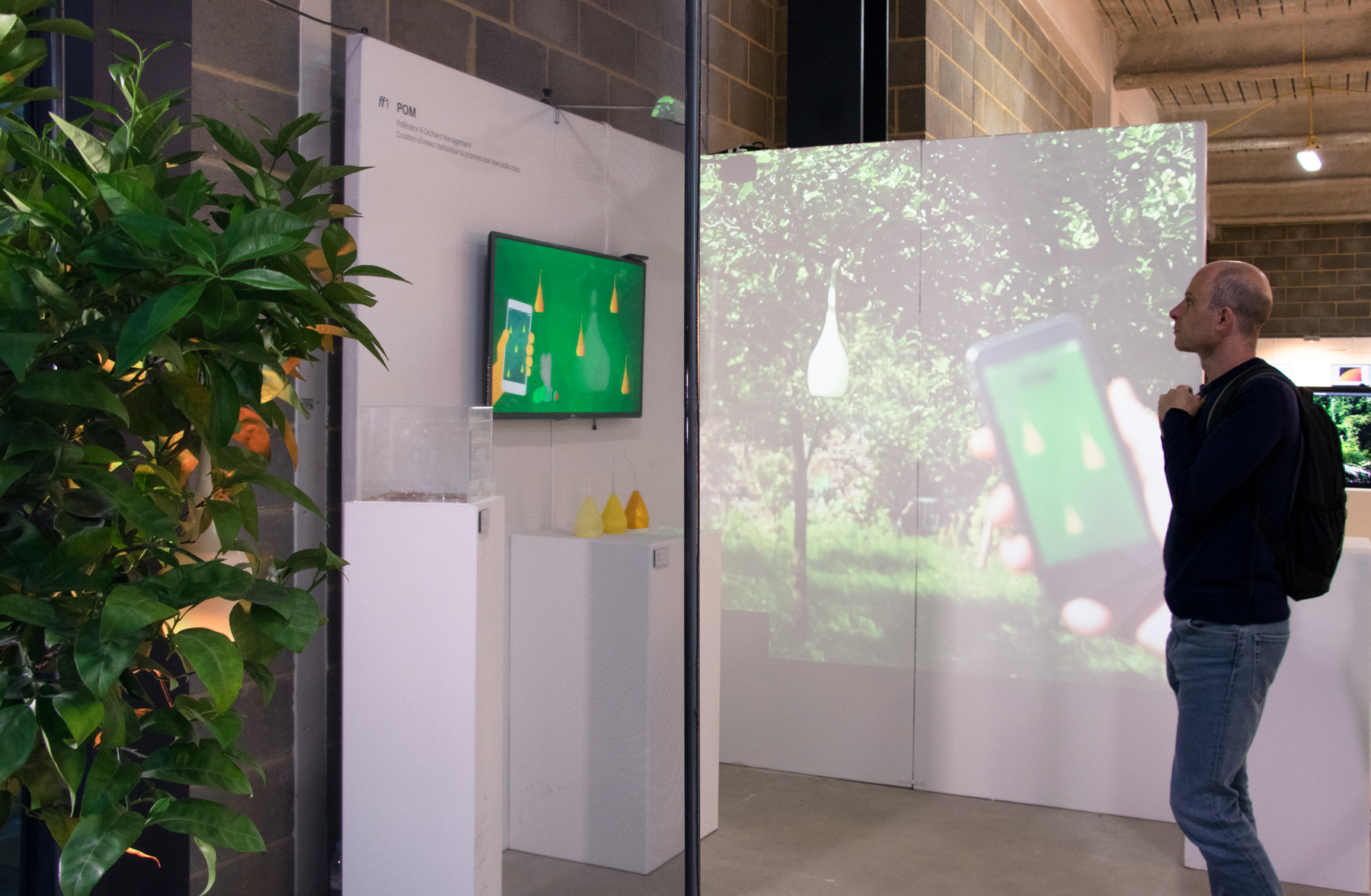
Tasty Space
Amber Yinjue Chen, Domenica Landin, Seray Ozdemir, & Yena Park
Based on research showing that astronauts who share the responsibilities of food preparation exhibit decreased levels of anxiety, Tasty Space is looking for new ways to engage future space travelers in the process of cooking and eating in space that builds connections between astronauts, and encourage socialization during meal times.
Cray-Away
Louis Alderson-Bythell, Sam Roots, Greg Orrom Swan, & Tashia Tucker
The introduction of the American Signal Crayfish has had a devastating effect on native fish and crayfish populations in the United Kingdom's inland waterways. Cray-Away is a biological intervention that uses pheromones to combat this invasive species.
Mycotopia
Naomi Ashworth, Bianca Russo, Carolyn Tam, Larasati Gunyuu, & Thomas James
Inspired by the interconnected networks of fungi in soil and plant interaction within these networks, Mycotopia is a mycelial planter system designed to recreate these networks within urban and domestic settings.
Learn more about projects and collaborators on RCA's website.
Instructors
Helene Steiner
Helene Steiner is a UK based designer and postdoctoral researcher at Microsoft Research who focuses on human interactions with our (natural) environment. Her research follows a biological approach and looks at opportunities to not only bridge the physical and digital world but also the natural and artificial. Her background is in product design with a master's degree from the Bauhaus University in Weimar. During her time in Vienna she studied under FROG founder Hartmut Esslinger to explore the extension of human bodies with technology and prosthetics. She also has a MA and MSc in Innovation Design Engineering at the Royal College of Art and Imperial College in London. She has collaborated with the Tangible Media Group at MIT Media and is a visting lecturer at the Royal College of Art.
Thomas Meany
Thomas Meany is founder and CEO of Cell-Free Technologies, a company producing low-cost kits to do biology anywhere. He was previously an interdisciplinary fellow, jointly hosted by the Dept. Plant Sciences and Chemical Engineering, at the University of Cambridge where he worked at the interface of technology and biology. He is passionate about working at the interface between hardware, software and bioware.
info@cell-free.tech
Advisors
Dr. Kirsten Jensen
Senior Research Officer/Project Manager SynbiCITE Imperial College London
Dr. Kirsten Jensen has been working in research for over 20 years. She began her career in Hamburg at the Heinrich Pette Institute - Leibniz Institute for Experimental Virology, where she worked on the molecular basis of Acute Promyelocytic Leukaemia.
Dr. Michael Crone
Research assistant - Imperial College London
Dr. Michael Crone transitioned into a research-orientated career after initially studying clinical medicine at the University of the Witwatersrand in Johannesburg, South Africa. In September of 2017, he will start a PhD in Synthetic Biology at École polytechnique fédérale de Lausanne where he is hoping to engineer novel transcription factors for the control of complex gene networks. Gene regulation and genome engineering remain his prime interests and in the future he hopes to combine clinical knowledge and synthetic biology to develop novel therapeutics for clinical applications.
Co-Director of the Centre for Synthetic Biology and Innovation, Imperial College London
Co-Director of the UK Innovation and Knowledge Centre for Synthetic Biology
SynbiCITE - Imperial College London
Professor Paul Freemont is co-director and co-founder of the Centre for Synthetic Biology and Innovation (since 2009) and the National UK Innovation and Knowledge Centre for Synthetic Biology (SynbiCITE; since 2013) at Imperial College London. He is also currently Head of the new Section of Structural Biology in the Department of Medicine at Imperial. His research interests span from understanding the molecular mechanisms of human diseases and infection to applying synthetic biology tools as novel biosensors and is the author of over 200 scientific publications.
